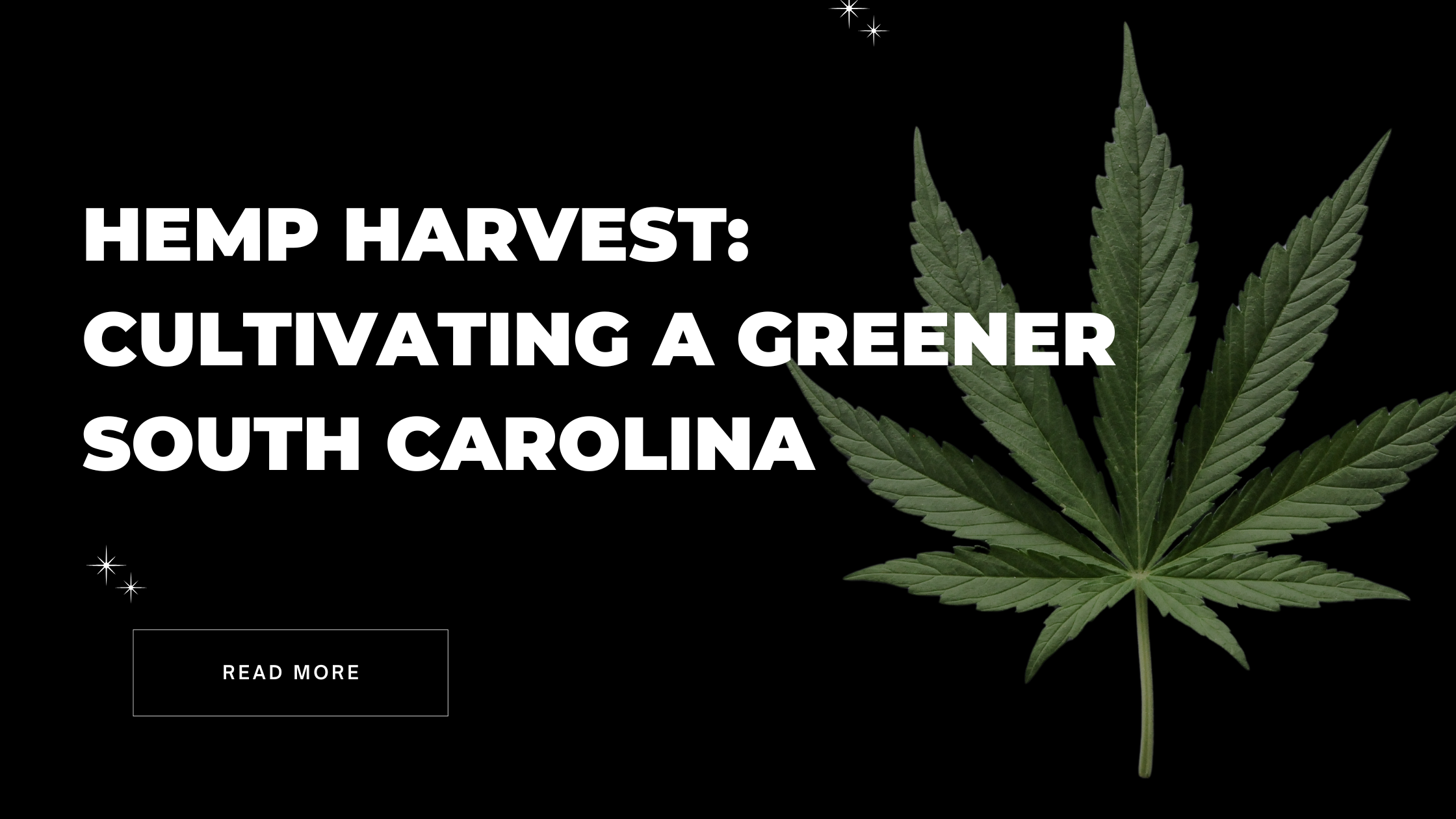
Hemp Harvest: Cultivating a Greener South Carolina
In an era where environmental sustainability has moved from a discussion to a necessity, the search for eco-friendly solutions is more critical than ever. One surprising contender in this green revolution is hemp. With its multifaceted benefits, hemp offers a promising path toward a sustainable future. Here in South Carolina, a state with a rich agricultural heritage, the potential of hemp to transform industries and ignite environmental responsibility is particularly potent.
The History of Hemp in South Carolina
Hemp has deep roots in South Carolina's agricultural history. Once a staple crop, it played a significant role in the state's economy until it was overshadowed by more lucrative crops and later prohibited. However, with the recent resurgence of interest in sustainable agriculture, hemp is making a comeback. This renaissance is not just about nostalgia but about harnessing the plant's potential to address modern challenges. "South Carolina's fertile lands have always supported diverse crops," says John Doe, a third-generation farmer and hemp cultivator. "With hemp, we're not only honoring our past but securing our future."
Environmental Benefits of Hemp Cultivation
Hemp is a powerhouse in environmental sustainability. Its cultivation requires less water compared to traditional crops, and it thrives without heavy reliance on pesticides. This resilience makes it an ideal crop for sustainable farming practices. Beyond agriculture, hemp's versatility is remarkable. It can be used to produce eco-friendly textiles, biodegradable plastics, and even building materials. Dr. Jane Goodall, a renowned environmentalist, notes, "Hemp provides a unique opportunity to reduce our ecological footprint. Its applications are as diverse as they are sustainable."
Case Studies and Interviews with Local Hemp Operators
The impact of hemp in South Carolina extends beyond theory and into practice. Local hemp operators, such as Green Fields Co-op, are leading the charge with innovative farming techniques that emphasize sustainability. By rotating hemp with other crops, they enhance soil health and biodiversity. "Hemp has reinvented our approach to farming," shares a Green Fields Co-op representative. "We're not just growing a crop; we're cultivating a community around sustainable practices."
The Future of Hemp in South Carolina
Looking ahead, the future of hemp in South Carolina appears bright. The state is poised to become a leader in hemp production, driving innovation across industries from textiles to construction. This potential aligns with a broader environmental movement aimed at reducing carbon footprints and promoting renewable resources. "Hemp is not a miracle cure, but it's a significant piece of the puzzle," asserts a local sustainability advocate. "By integrating hemp into our economy, we're investing in a more resilient and sustainable future."
Bottom Line
The path to building a sustainable future is paved with initiatives that prioritize both ecological balance and economic viability. Hemp stands out as a sustainable powerhouse, capable of transforming industries while preserving our planet. Supporting hemp-based products and practices is more than a choice; it's a responsibility. As individuals, our contribution to a greener future can begin with simple, informed decisions. By choosing hemp, we support a movement that honors our past, embraces our present, and protects our future. Join us in cultivating a greener South Carolina—one hemp plant at a time.
